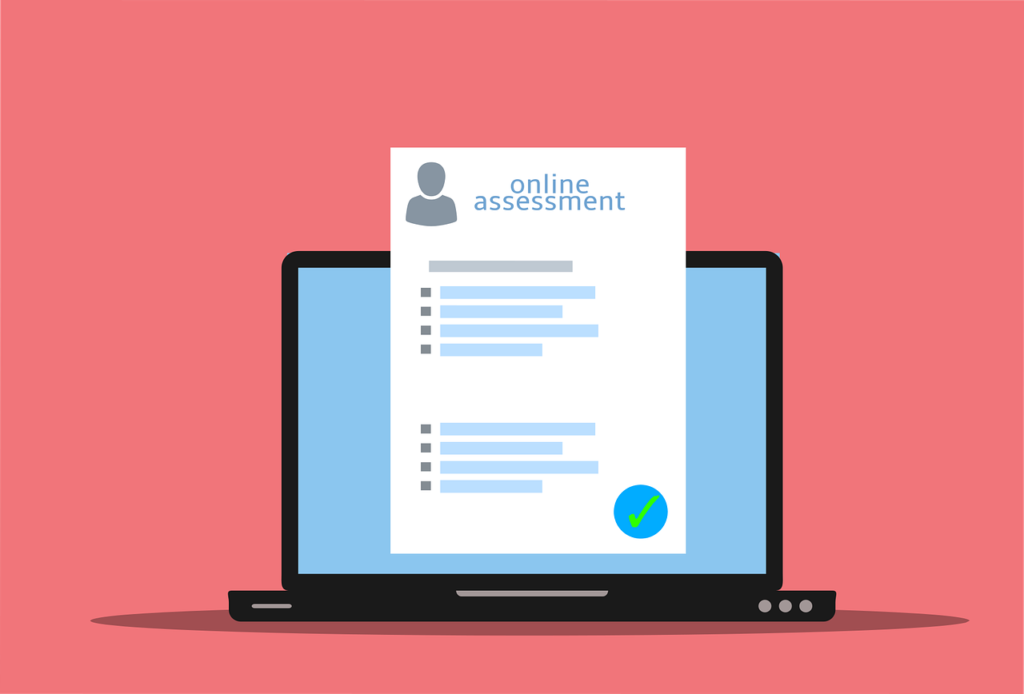In Part 1 of the series on how to hire remote developers, we shared with you how to plan your remote recruiting process from start to finish.
This includes essential steps such as defining your development needs, building a Hiring Scorecard, and choosing the best way to find and engage with remote developers.
However, if you managed to do all of the above successfully, you’d reach a point when it’s time to start interviewing. But what questions should you ask? What process should you follow?
In this article, we’ll help demystify the interviewing process for remote developers. We’ll share the process that we follow ourselves to hire the best remote developers.
If you’re an early-stage start-up like us, this recruiting process is golden for scaling your team with confidence. It provides a great balance between quality vs. resource commitment. This is obviously important for startups as resources are limited. At the same time, a hiring mistake could be detrimental to the business.
So without further delay, let’s see the step-by-step interviewing process for remote developers. This 6-step process has been proven to work for us time after time.
Step 1 – First Screening Call [15-30min]
The main goal of the first screening call is to establish an initial rapport with the candidate and verify the match on the basic parameters (e.g. “Do you have experience with Node.js?”). To do this, we’ll use the Hiring Scorecard that you made in your planning phase. In case you missed it, you can read more about how to build a hiring Scorecard in Part 1.
Once you have your Hiring Scorecard prepared, you should make a fillable copy for each candidate you’re going to interview. You can do this either in a digital format or on paper. However, in both cases, you must be very rigorous when it comes to organizing and storing your Hiring Scorecards. They would be your main instrument for interviewing candidates, tracking the performance of hired employees, and optimizing/upgrading your recruiting process over time. Now that we made this important note let’s continue on.
In the first call, your aim is to just quickly figure out which candidates are worth interviewing in more depth and which candidates are not worth interviewing further. Therefore, you should identify the Scorecard items that can be screened on the basis of quick, straightforward questions. For example, you would ask questions such as “How many years of experience do you have with Flutter?”. But not questions such as “Could you tell me in detail the different parts of Flutter that you have used, and what projects have you built with each one?”.
With that in mind, it’s a good rule of thumb to pick around 5-10 simple questions from your Hiring Scorecard and only stick to them in the first interview. Ideally, you should choose questions that allow you to build a broader picture of the candidate. Focusing too much only on one aspect (for example, technical skills) is NOT recommended.
Let’s take a look at a few practical examples of possible questions in different categories below
Technical skills:
Have you worked with the technology ABC?
How many years of experience do you have with ABC?
Soft skills:
Do you have experience as part of a remote team?
Can you share a case when you did something outside of your regular responsibilities?
Motivation
Would you be interested in building a project about X?
Would you be interested in working with the technologies ABC?
Organizational
Would the salary range X-Y be within your expectations?
Would you be able to start on the 1st of next month?
Step 2 – Technical Screening [2-6 hours]
A very important part of interviewing remote developers is the technical screening. Ideally, you want to give developers a take-home assignment that can be completed in about 2-6 hours to see the level of their technical skills (without over-burdening the candidates unreasonably).
In this regard, a burning question, spurring many heated debates is the following:
Should you pay the developers for the time they spend on the technical test or not?
For us, it’s better if the developer is okay with doing the test for free – GIVEN that the test is not unreasonably big. That’s definitely NOT in order to save some bucks, but because this is a strong indication of their motivation to work with you.
However, keep in mind that giving the developers an actual task that you can use internally (without paying them) is perceived poorly and will likely backfire. Instead, create a fictional task that resembles the type of tasks that your team usually encounters.
Some companies do NOT use take-home assignments in the screening process – but rely on tests given to the developers. Most companies make the mistake of giving only generic tests to developers. Don’t get us wrong – generic tests are good for assessing the general skills and expertise level of developers. In fact, we pre-screen the remote developers that sign-up to RemoteMore with tests about their main tech stack.
However, if you’re going to spend time and money on building and running generic tests, then your resources will be mostly wasted. That’s because generic tests don’t indicate so well that a particular developer will be a good fit for your specific project.
That’s why the best thing you can do is build a custom technical test (or take-home assignment) with components that are specific to your project. For example, don’t test “Node.js”, test the candidates on “Cloud Functions implemented with Node.js”. This will be a lot more reliable than the generic technical test.
If you don’t have the know-how or capacity to create and run these technical screening assessments, at RemoteMore, we offer custom technical screening for your specific tech stack.
👉 We can test any developer candidates that you may have, regardless if you have found them through RemoteMore or any other platform. Start by getting in touch with our team.

After you’re done with the technical tests and you know the results, you can proceed further with the candidates who passed the technical screening.
Step 3 – Personality Test [30-60 min]
Another very important and often overlooked step of interviewing developers (or any other experts, for that matter) is the personality test.
In the same way that technical tests can verify the candidate’s technical skills, personality tests can serve as proof of soft skills and cultural fit.
Plus, BONUS – most people find them FUN to do. 🙂
One very popular personality test that almost everyone knows is 16 personalities.
The test is good and can give very interesting and useful insights about a person. You can do the test for free on the link above.
However, there is one test that is even better for interviewing purposes is PrinciplesYou, co-created by the famous Ray Dalio. That’s the personality test that we personally use and recommend. Once again, it’s free and even has a functionality to “compare” the results of two people – to assess if they’ll be a good team together.
The way to use those personality tests is – to look for specific traits that cover the Soft Skills required for the particular job. For example, for a QA position in a Fintech company, you may require that candidates must have a high score on detail-oriented.
Step 4 – In-depth Interview [about 1 hour]
At this point, you should already have narrowed down your search to a handful of candidates. Developers who passed the initial screening, deeper technical tests, and personality tests – are probably a good addition to your team and company culture.
The main goal of the in-depth interview should be to go over all the questions in the Scorecard that are not resolved yet (plus getting in more depth anywhere needed). Remember to score carefully the candidate on each of the questions, as you’ll use these scores in your hiring decision – and also for future reference when reviewing employee performance.
It’s a good idea to delegate at least 15-20 mins to discuss the key outcomes you want to see from the job with the developer (the centerpiece of your Scorecard). You can present those key outcomes and ask the candidate questions like:
What do you think about the expected outcomes?
Do you think you’ll be able to achieve those outcomes in the discussed timeline?
What makes you interested in the current job?Do you have any concerns or any remaining questions?
If all seems fine, you can proceed to the final steps of the recruiting process.
Step 5 – Offer stage [15min]
We’re almost at the finish line. But don’t celebrate too early! Although it may seem very straightforward, this step of the process is tricky and can result in failure if not handled properly.
Large corporations can afford to pay high salaries or even lose qualified candidates further down the hiring funnel – they have the resources to absorb it.
However, for startups, the picture is very different. Startups usually have tight budgets and can’t compete so well with the large companies on the salaries they offer. At the same time, discussing the salary only at the final stages of the interview process is rather risky. If you offer a salary that’s too low you can turn away qualified candidates.
But developers already have a high negotiation power after going through so many steps and verifications. So how do you solve this problem? The answer is – you usually can’t, you just have to assume the risk and move forward.
Knowing this is a major issue for Startups, we’ve implemented a free salary discovery service into RemoteMore’s platform. On RemoteMore, you can see the pre-negotiated salary of each developer (with all commissions and taxes included). That is the final salary you’ll be paying to hire the developer. So you can fill your recruiting pipeline only with candidates that match your budget requirements from the get-go. In this way, you can be sure you get the maximum value for your money without wasting any of your time.
Step 6 – Background check (Optional) and Legal
Congratulations on making it to the end!
Although the background check is an optional step, we highly recommend doing at least a very basic background check. The background check could be simple – requesting documents verifying the identity and address of the person, such as utility bills and bank statements (with sensitive information covered).
Creating and signing good contracts, with Intellectual Property ownership, etc., is also very important. You want to be GDPR compliant and also take into account international and local labor laws. Otherwise, you risk hefty fines. For example, in Germany, misclassification of an employee (as a contractor) may attract a fine of up to EUR 30,000 + additional fines and even, in some cases, imprisonment.
If you’re not sure about the legal aspect of background checks, such as what documents you can ask for, how to store them, etc… Or how to create good/compliant remote contracts, we can help you with it.
We can take care of all legal and payroll aspects on your behalf – assuming 100% of the legal risks instead of you. You can read more about our legal shield and payroll services here.
Final Words
Interviewing remote developers is crucial to the success of anyone who is building software products. With the information provided in this article, you are now well on your way to hiring remote developers with a very high success rate!
If you have any questions or comments, as always, feel free to reach out to us at contact@remotemore.com (we usually answer within 24 hours). Good luck interviewing your dream remote developers!






